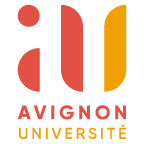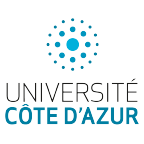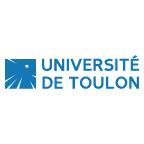- All
- [Open Science Policies]
- Auvergne-Rhône-Alpes
- Bourgogne-Franche-Comté
- Brittany
- Centre-Val de Loire
- Corsica
- DROM-COM
- Grand Est
- Hauts-de-France
- Île-de-France
- Normandy
- Nouvelle-Aquitaine
- Occitania
- Pays de la Loire
- Provence-Alpes-Côte D'Azur

Aix-Marseille University
The largest multidisciplinary French-speaking university, Aix-Marseille University (AMU) welcomes 80,000 students and nearly 8,000 staff on 5 large campuses of international standards. Owning 90% of its assets, the university is present in 9 cities in 4 departments of the Southern Region.
Its A*Midex University Foundation, which carries the IDEX on a long-term basis, contributes to the development of a world-class interdisciplinary higher education and research centre. Known as an “intensive research university”, it is home to 122 research structures linked to major national research organisations.
Created on 1 January 2012, Aix-Marseille University (AMU) can legitimately consider, at the end of an initial period 2012-2017 largely devoted to the structuring of the single university, that it has taken up the major challenge it had set itself: to successfully merge the three universities in the area and give birth to a large world-class university.
AMU is thus an intensive research university, which has forged partnerships all over the world, which has affirmed its territorial anchorage and integration and which ranks among the very first French universities in the Shanghai ranking. AMU is a multidisciplinary university structured around five disciplinary sectors divided into 18 components (faculties, schools, institutes) and one multidisciplinary sector (including ESPE and IUT) :
- Arts, Letters, Languages and Human Sciences
- Law and Political Science
- Economics and Management
- Health
- Science and Technology
It is present in four departments and nine cities. It has a real estate portfolio spread over 58 sites representing more than 830,000 m². AMU was a winner of the Campus Operation, which, in conjunction with the CPER (State-Regional Plan Contract), enables it to rehabilitate and modernise its campuses in order to aim for the best international standards. AMU is now a recognised and identified partner, which has been able to impose its identity and assert itself as a key player in its region, in whose development and influence it plays an active role.
From 2012, AMU has developed and structured a streamlined and clear training offer. From 2012, AMU has developed and structured a streamlined and clear training offer. This work has been deepened within the framework of the master plan for the training offer that it developed in 2016 and 2017, the result of internal consultation but also of exchanges with socio-economic partners and communities. In terms of research and innovation, AMU has developed a strategy co-constructed at the site level in conjunction with the main research organisations (CNRS, Inserm, IRD, CEA, etc.) and structured around its numerous research units and federations and its five intersectoral and interdisciplinary research centres (PR2I):
- Energy
- Environment
- Humanities
- Health & Life Sciences
- Advanced Science & Technology
The excellence of the site’s research has been recognised in particular by its success in several national (labex, equipex, Instituts convergences, RHU, EUR…) or European calls for projects of the H2020 type (AMU is thus the third French institution raising funds under this programme). The labeling of the A*Midex project, carried by Aix-Marseille University and its partners (AMU, CNRS, Inserm, IRD, CEA, Assistance Publique-Hôpitaux de Marseille, Institut d’Etudes Politiques d’Aix-en-Provence and Ecole Central de Marseille), has also had a tremendous structuring and stimulating effect on the institution. It has created a real dynamic around the five priority themes and the strategic objectives identified from 2012:
- Excellence in training and research
- Partnerships with the socio-economic world
- Internationalization of the site’s areas of excellence
- Ambitious human resources policy
- Attractiveness of the site
A*Midex thus functions as an accelerator, through calls for projects or proactive actions, so that Aix-Marseille University and its partners can quickly achieve their ambitions. The perpetuation of A*Midex in 2016 reflects both the recognition of the work accomplished by AMU and the opportunity to have a formidable tool to support the university’s strategy.
At the end of a period that has seen the energies of our entire university community mobilised to build a new institution, it is on the strength of this collective dynamic that AMU is now projecting itself into its future by carrying out a project that is both ambitious and unifying for the period 2018-2022. Thus, while the first five-year contract for 2012-2017 was naturally aimed at installing and structuring the merged university. The 2018-2022 contract will be placed under the triple seal of innovation for all of the university’s fields of activity, strengthening the link between training and research and the quality approach as the guiding threads to always aim for excellence, notably with the support of A*Midex.
HAL portal
Open Science Policy

Avignon University
Avignon University’s two campuses, Hannah Arendt and Jean-Henri Fabre, are proof that culture and agro-sciences are the cornerstones of a credible future for Provence, for its youth, for living together.
The multi-century history of our University leads to active and recognized research, solid and adapted training with the aim of forging talents, accompanying graduates and launching gems. “Do not wait for the future, make it happen” is its motto.
HAL portal
Open Science Policy

Université Côte d’Azur
Université Côte d’Azur has been an experimental university since 1 January 2020 replacing both the Université Nice Sophia Antipolis created in 1965 and the Communauté d’Universités et d’Etablissements Université Côte d’Azur created in 2015.
Université Côte d’Azur now includes 17 major academic establishments around the historic university core to create one of France’s top 10 research-intensive universities.
Since 1 January 2020, Université Côte d’Azur has been officially recognized as an experimental university. This new academic status helps develop a bold and independent strategy based on:
- breaking down the barriers between education, research and innovation,
- developing agility and responsiveness through the increased autonomy of the units,
- the ability to harness the amazing potential for diversity represented by its 17 members.
It is based in particular on setting up University Research Schools and giving them this essential role of redesigning university architecture. It also accelerates the implementation of a “Bac-3/Bac+3” principle aimed at effectively combating failure at schools and universities. Finally, it opens up the field of possibilities on the density and diversity of public-private partnerships and on the university’s overall funding model.
HAL portal
Open Science Policy

University of Toulon
Founded in 1968 and independently managed since January 1st 2012, the University of Toulon (UTLN) places the University’s attractiveness at the core of its long-term strategic plan.
Well-established throughout the region, the University of Toulon works closely with the region’s social and economic institutions to tailor its academic programmes and research activities to their needs.
The University of Toulon is an interdisciplinary institution with 3 campuses. The University offers a hundred different degrees (excluding medical school) and operates 15 Research Units.
The University of Toulon offers a hundred different degrees in the following fields :
- Art, Literature and Languages (ALL)
- Law, Economics and Management (DEG)
- Humanities and Social Sciences (SHS)
- Sciences, Technology and Health (STS)
The University of Toulon is proud of the quality of its academic programmes and the support from the Department of Academics and Student Life (DEVE) and the Department of Continuing Education (FTLV).
Each Faculty has its own Academic and Development Committee to ensure the quality and attractiveness of its degree programmes.
Research is a fundamental element of French universities. The University of Toulon has nearly 300 professors/researchers and 15 dynamic and internationally recognized Research Units.
The University’s Research Units regularly organise and participate in seminars and symposiums and actively publish their research.
Having a wide range of research programmes is a valuable asset which facilitates an interdisciplinary approach. The three main areas of research at the University of Toulon are :
- Sea, Environment, and Sustainable Development
- Information
- Comparative Euro-Mediterranean Civilisations and Societies